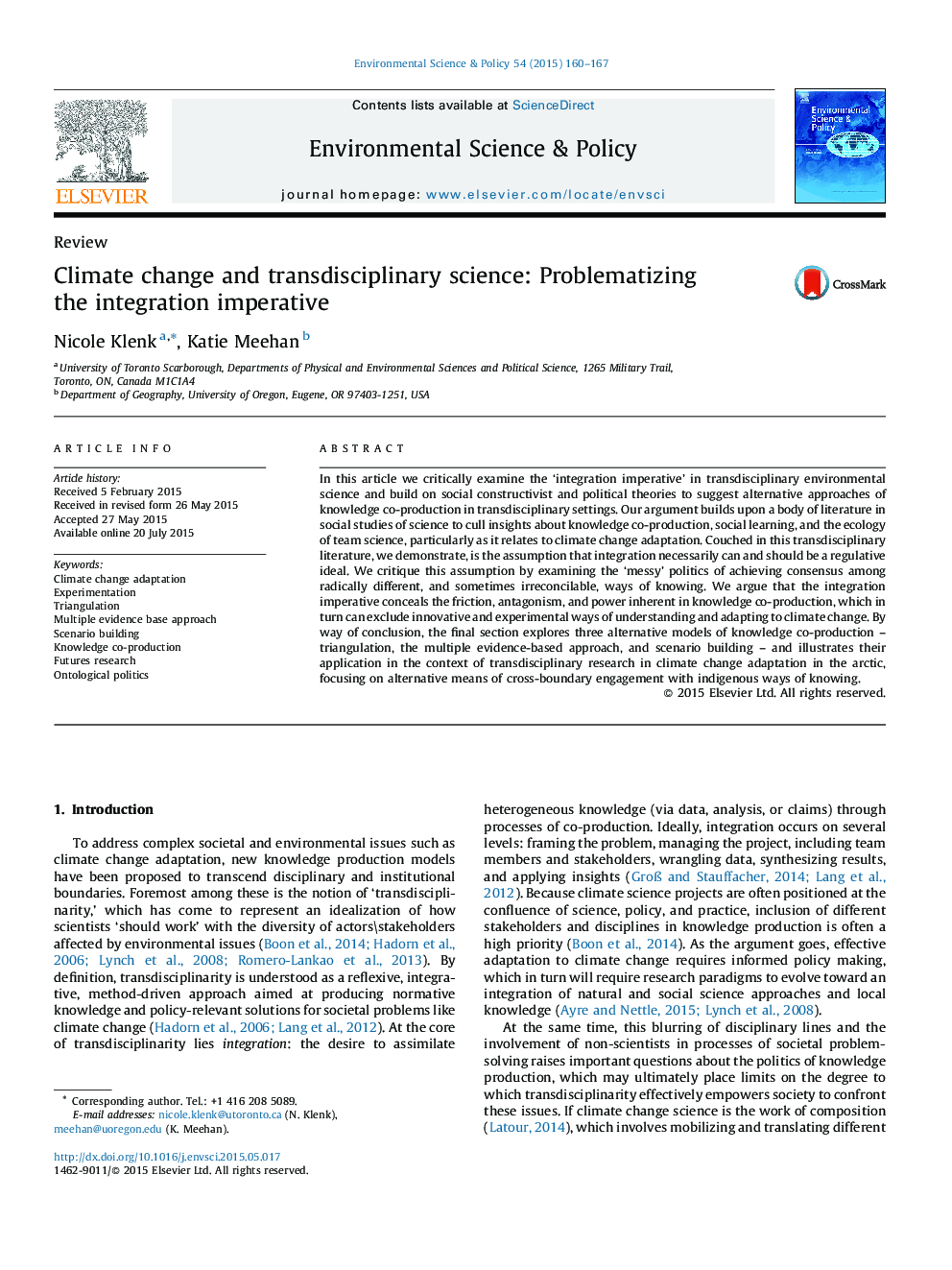| Article ID | Journal | Published Year | Pages | File Type |
|---|---|---|---|---|
| 7467232 | Environmental Science & Policy | 2015 | 8 Pages |
Abstract
In this article we critically examine the 'integration imperative' in transdisciplinary environmental science and build on social constructivist and political theories to suggest alternative approaches of knowledge co-production in transdisciplinary settings. Our argument builds upon a body of literature in social studies of science to cull insights about knowledge co-production, social learning, and the ecology of team science, particularly as it relates to climate change adaptation. Couched in this transdisciplinary literature, we demonstrate, is the assumption that integration necessarily can and should be a regulative ideal. We critique this assumption by examining the 'messy' politics of achieving consensus among radically different, and sometimes irreconcilable, ways of knowing. We argue that the integration imperative conceals the friction, antagonism, and power inherent in knowledge co-production, which in turn can exclude innovative and experimental ways of understanding and adapting to climate change. By way of conclusion, the final section explores three alternative models of knowledge co-production - triangulation, the multiple evidence-based approach, and scenario building - and illustrates their application in the context of transdisciplinary research in climate change adaptation in the arctic, focusing on alternative means of cross-boundary engagement with indigenous ways of knowing.
Keywords
Related Topics
Physical Sciences and Engineering
Energy
Renewable Energy, Sustainability and the Environment
Authors
Nicole Klenk, Katie Meehan,
